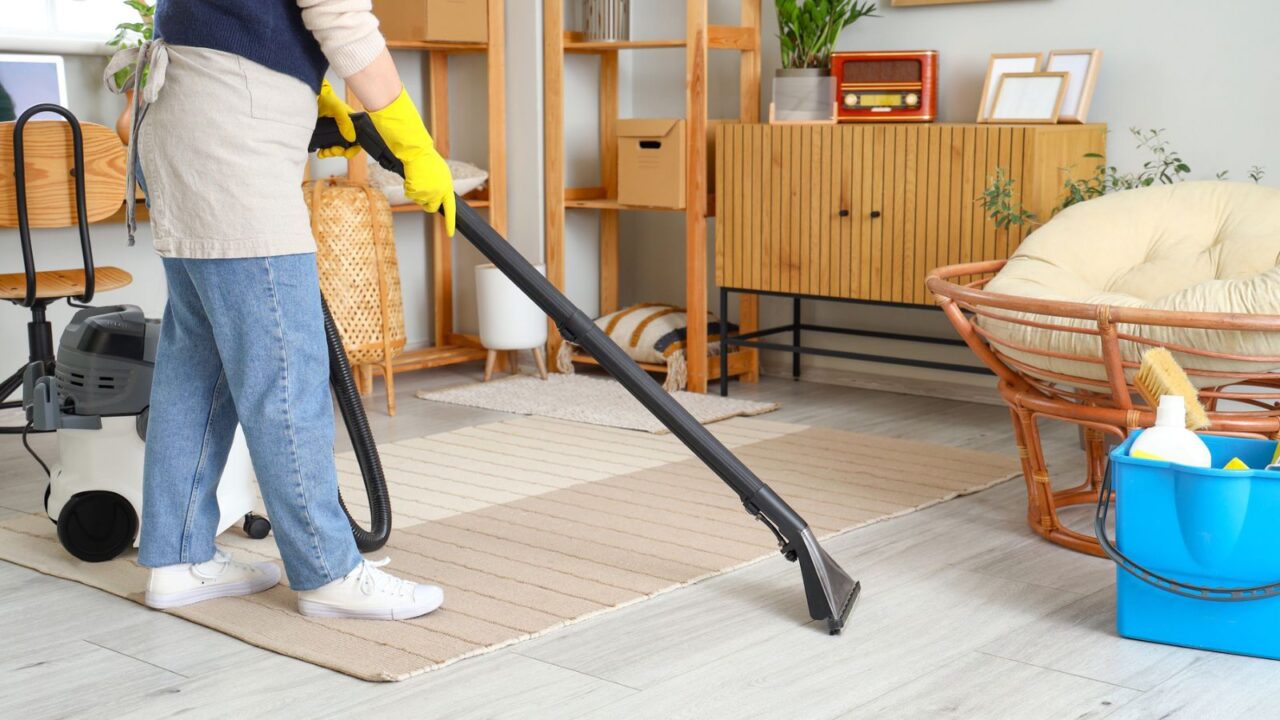
Stop Wasting Time on These Cleaning Myths
Do you know many so-called cleaning rules we follow are mostly outdated, ineffective, or even counterproductive? From using too much product to believing in the power of certain DIY hacks, you might be making your spring cleaning harder than it needs to be.
Let’s bust some of the most common myths and make your deep clean smarter, not harder.
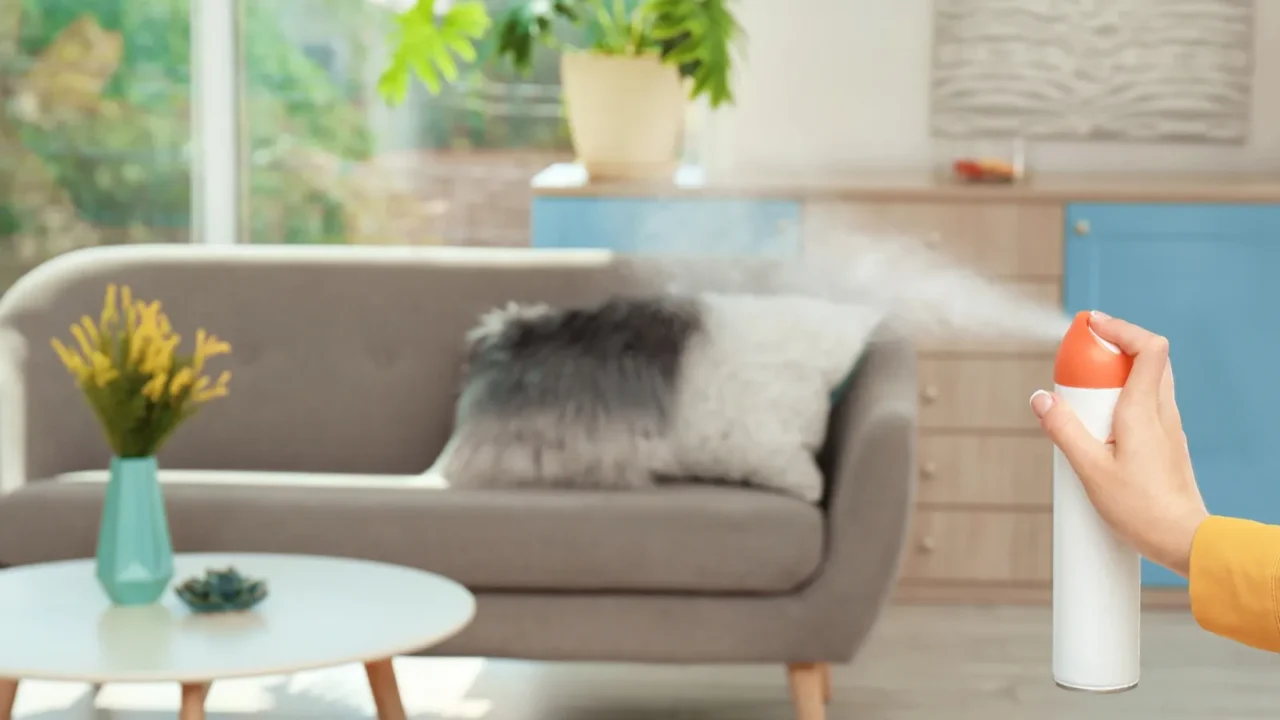
Air Fresheners Actually “Clean” the Air
That fresh linen or ocean breeze scent might make your home smell clean, but air fresheners don’t actually remove odors, they just mask them. Worse, many contain harmful volatile organic compounds (VOCs) that can contribute to indoor air pollution.
To truly clean the air, use an air purifier or opt for natural odor absorbers like baking soda or activated charcoal.
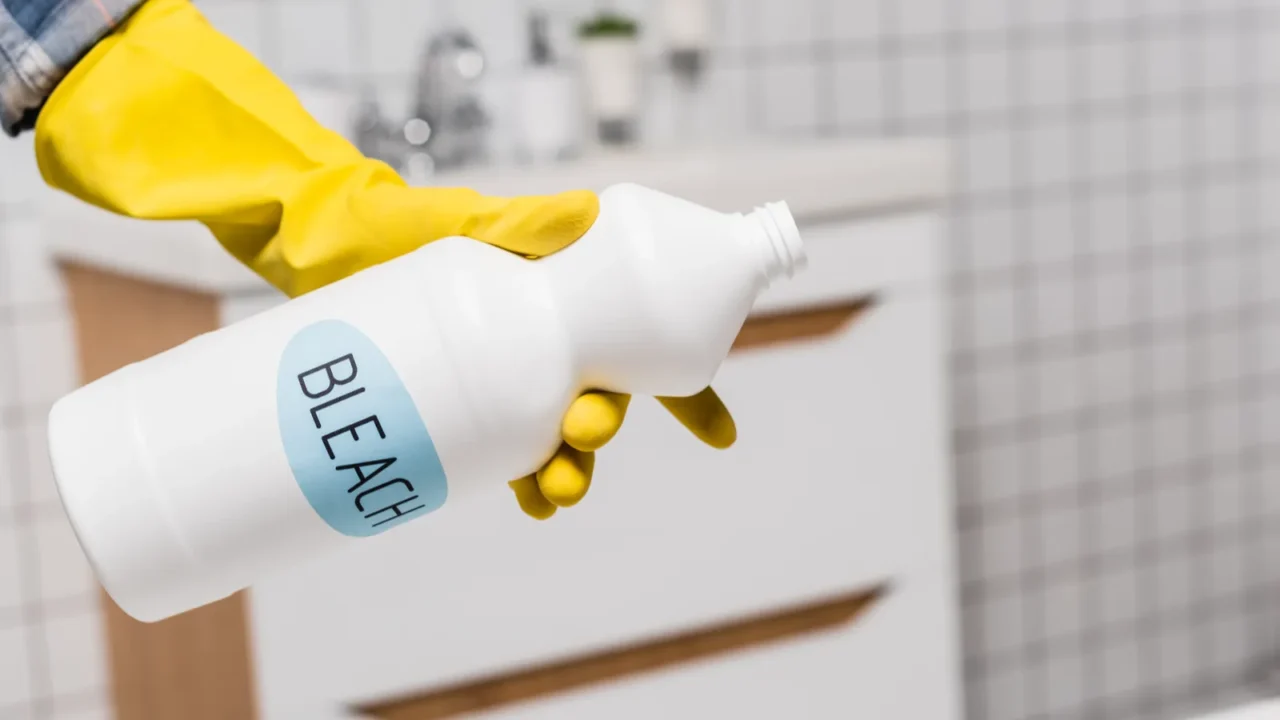
Bleach Cleans Everything
Bleach is a powerful disinfectant, but it’s not a universal cleaner. It doesn’t remove dirt or grease, it only kills bacteria and whitens stains. Using bleach improperly, like mixing it with ammonia-based cleaners, can create toxic fumes that are hazardous to your health.
Opt for enzyme-based cleaners which are safer and more effective alternatives for breaking down organic stains and odors.
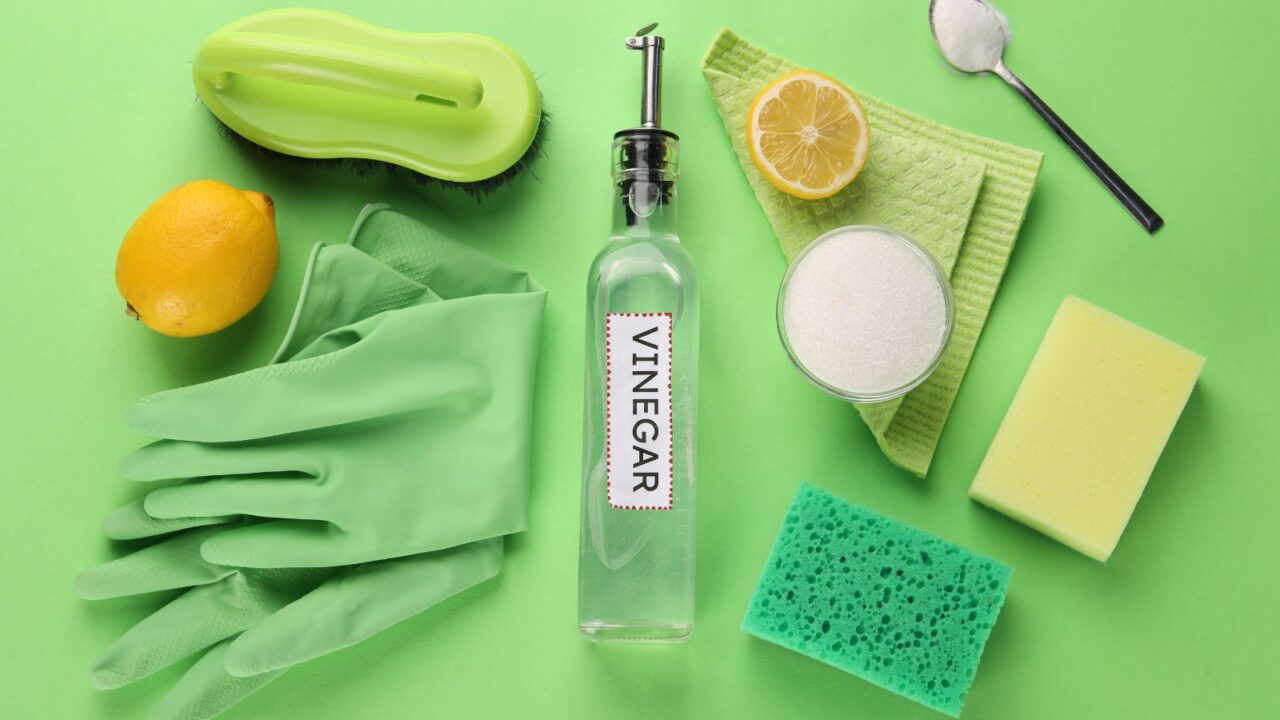
Vinegar Cleans Everything
I can confidently say that vinegar has greatly helped me in cleaning my home in various ways. However, it’s important to note that it should not be used on every surface, as it is not a one-size-fits-all solution.
While vinegar is great for breaking down mineral deposits and cutting grease, its acidity can damage certain surfaces. But too much vinegar can etch and dull natural stone surfaces like marble and granite.
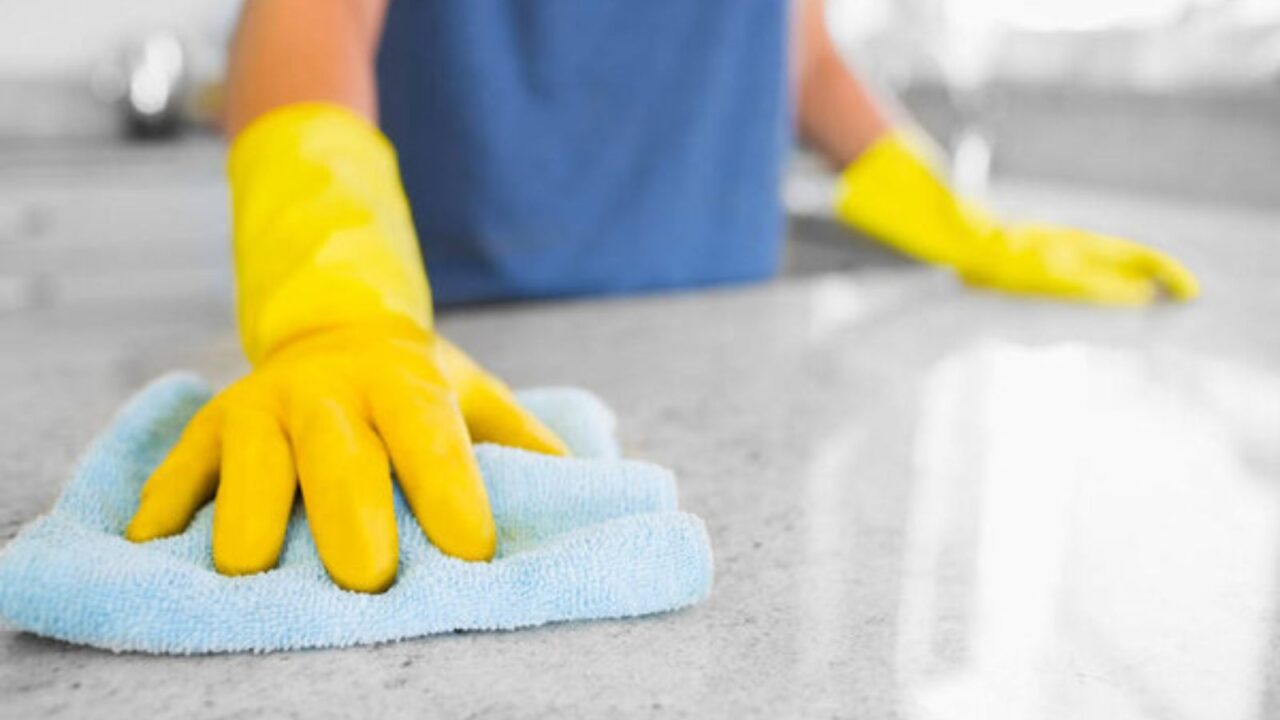
More Soap Means Cleaner Surfaces
It’s tempting to think that using extra soap or detergent means extra cleanliness. In reality, too much soap leaves behind a residue that attracts dirt and grime. Additionally, more product often means more work, as you’ll have to rinse multiple times to get rid of the film.
Always remember that high-efficiency (HE) appliances are designed to use less soap, so stick to the recommended amount to prevent buildup in the first place.
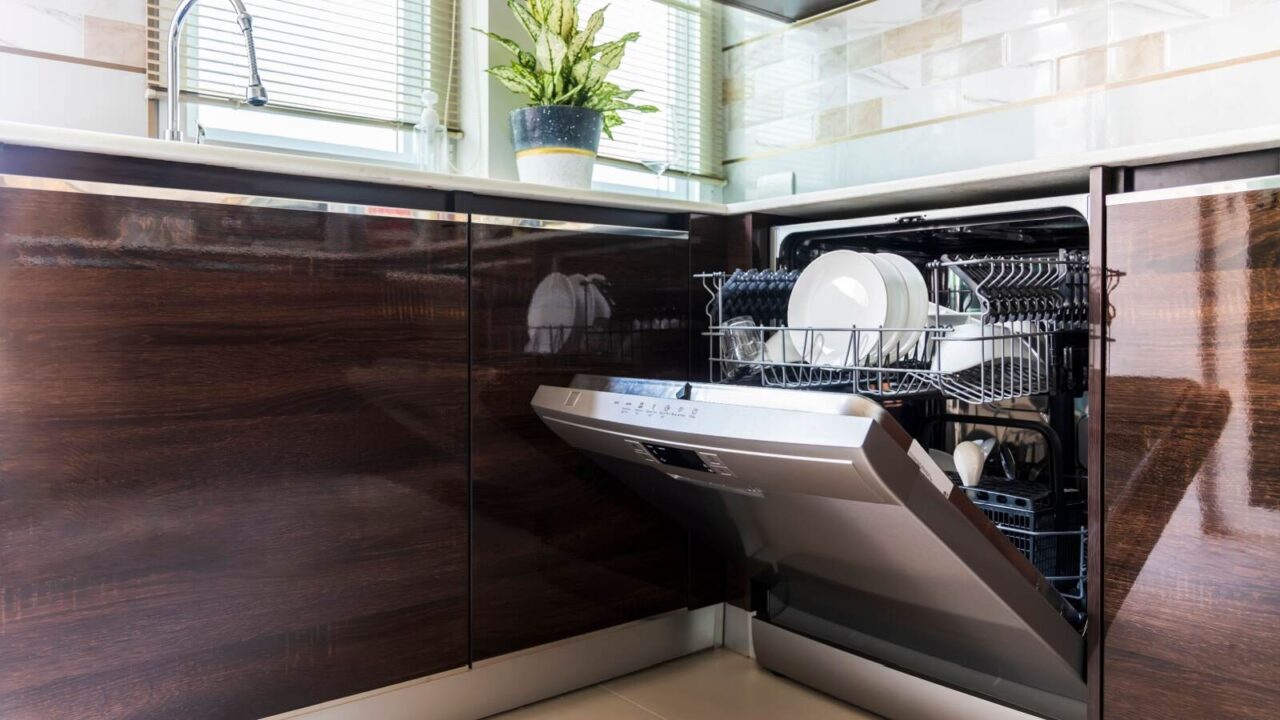
Your Dishwasher Cleans Itself
Many people assume their dishwasher stays clean because it washes dishes daily. However, food particles, grease, and soap scum build up over time which leads to foul odors and reduced performance.
Clean your dishwasher monthly by running a cycle with white vinegar and baking soda to break down grime and keep it fresh.

Windows Should Be Cleaned on a Sunny Day
A bright, sunny day seems perfect for washing windows, right? Wrong. Direct sunlight causes cleaning solutions to dry too quickly, leaving behind streaks and residue.
Clean your windows on a cloudy day or during early morning or late afternoon hours for streak-free results. Additionally, using a squeegee with a rubber blade can help achieve a smooth finish and prevent water spots from forming.

Vacuuming Too Often Wears Out Carpets
Some believe frequent vacuuming ruins carpets, but the opposite is true. Dirt and debris act like sandpaper, breaking down carpet fibers over time. Regular vacuuming (at least once a week) actually extends the life of your carpets.
Use HEPA filter vacuums if you can. These vacuums help remove allergens and dust mites. Moreover, HEPA vacuums make frequent vacuuming beneficial for air quality.
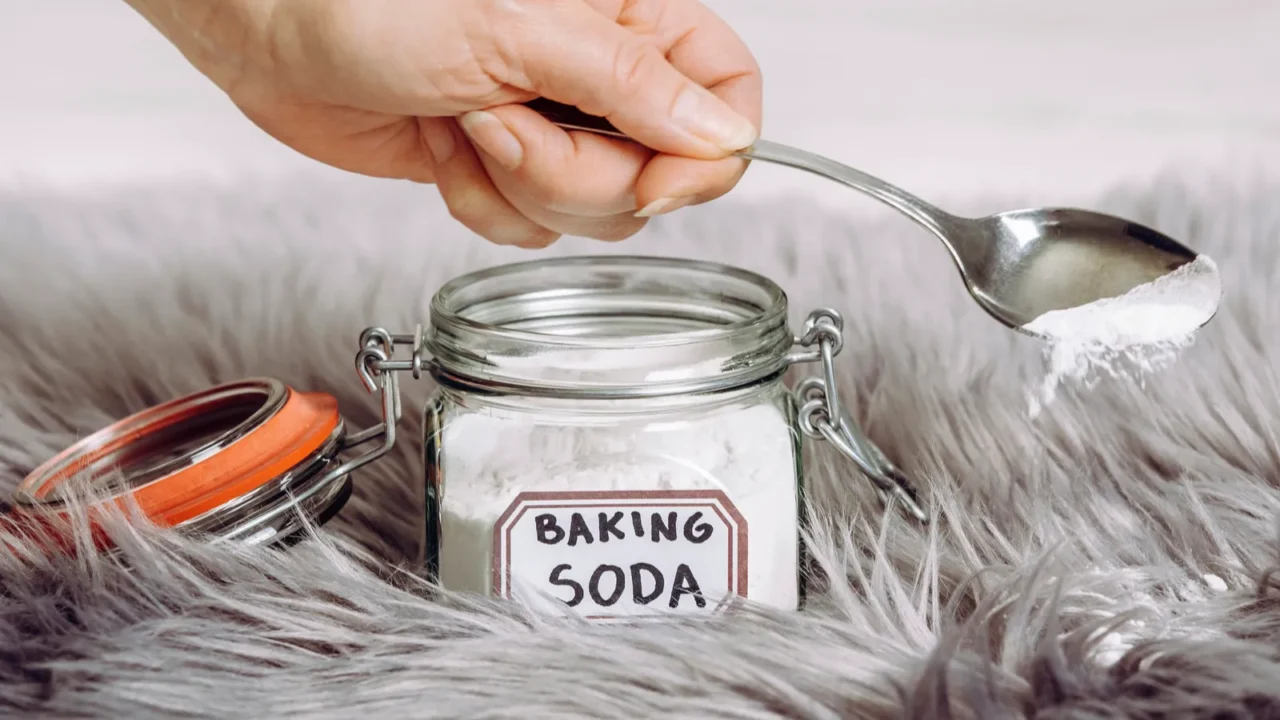
Baking Soda Works Wonders on Every Stain
Baking soda is a great deodorizer, but it’s not always the best stain remover. On some fabrics, it can be too abrasive, and on carpets, it may leave behind a gritty residue that’s hard to vacuum up.
If you want to remove any stubborn stains, try an enzymatic cleaner that breaks down proteins and oils for a deeper clean.
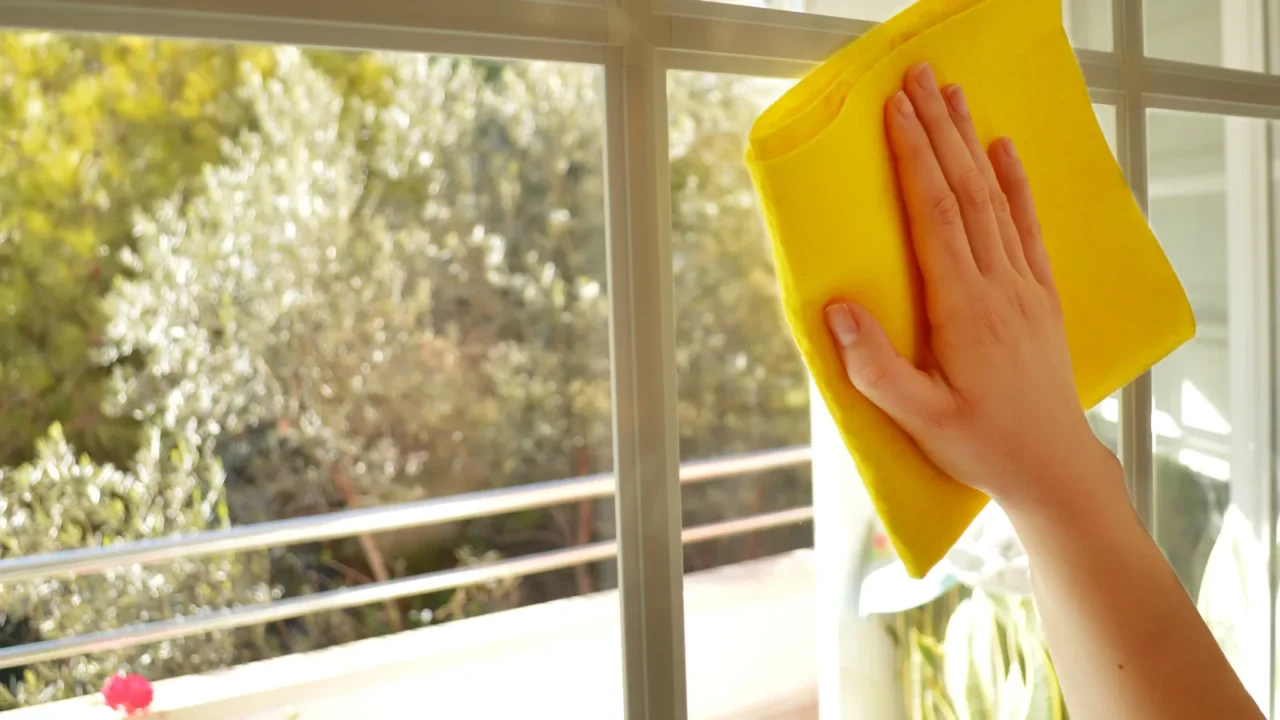
Newspaper is the Best for Cleaning Glass
The newspaper was once a go-to for streak-free glass, but modern ink and paper quality have changed. Many newspapers now use soy-based ink, which can smudge, and thinner paper, which disintegrates when wet. This can leave fibers and streaks behind, which we don’t want.
Use a microfiber cloth or a squeegee with vinegar and water solution for a truly streak-free shine.
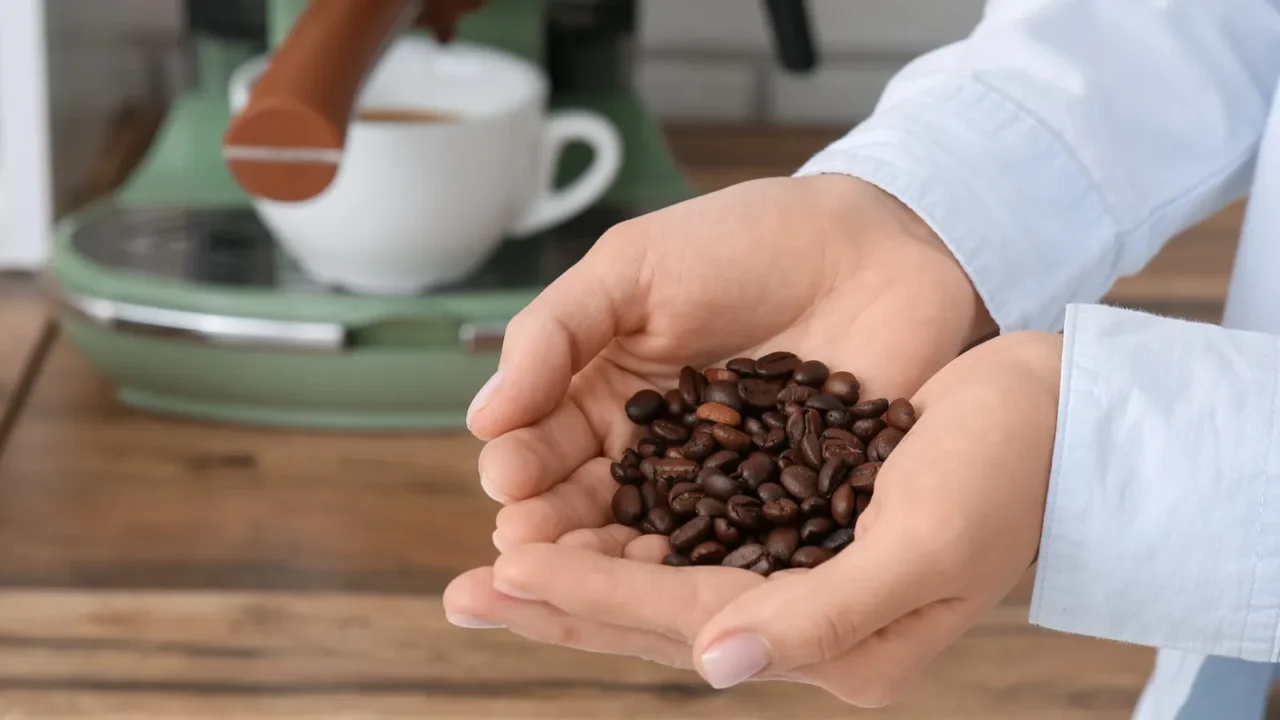
Coffee Grounds Freshen Up Your Garbage Disposal
It sounds like a smart trick, but dumping coffee grounds into your disposal can actually lead to clogs. The fine grounds can turn into a sludge-like paste, sticking to pipes and creating blockages over time.
Instead of coffee grounds, toss in citrus peels or a mix of baking soda and vinegar to naturally deodorize your disposal.
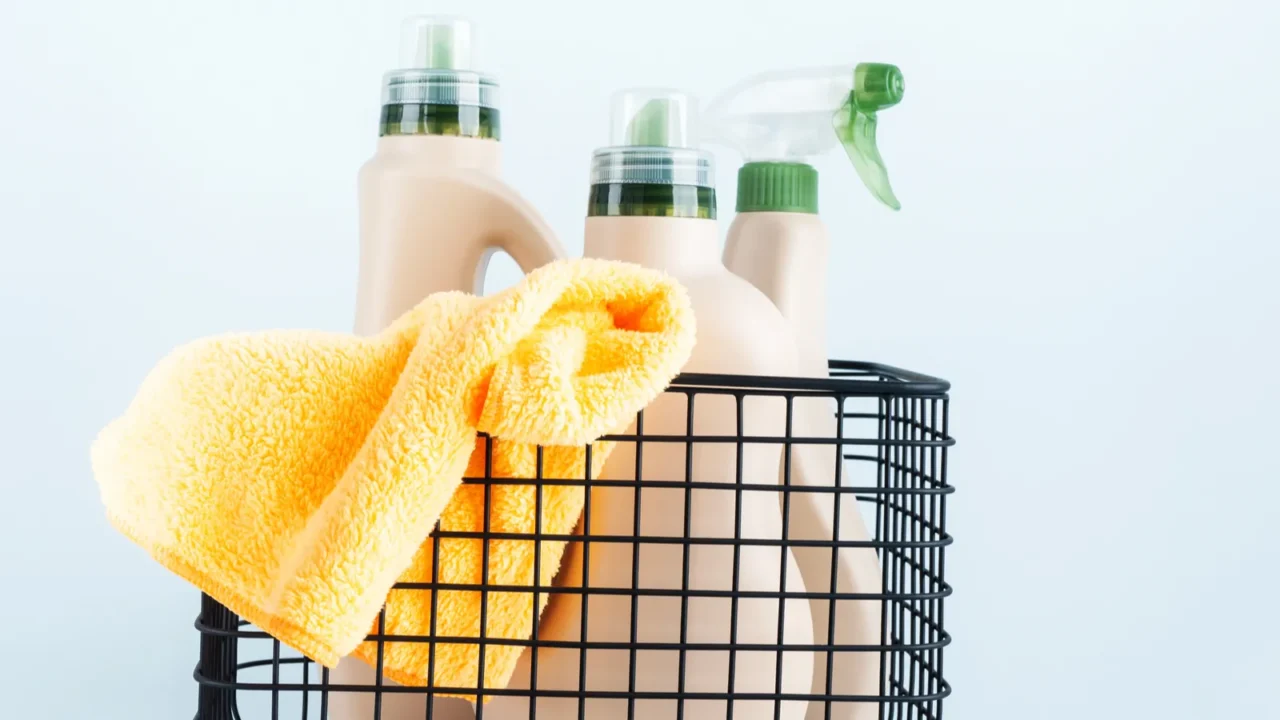
All Green Cleaning Products are Safe and Non-Toxic
Just because a product is labeled “green” or “natural” doesn’t mean it’s completely safe. Some eco-friendly cleaners still contain chemicals that can cause skin irritation or respiratory issues.
Check for third-party certifications like EPA Safer Choice or Green Seal to ensure the product meets rigorous safety and environmental standards.

You Should Never Put Silver Cutlery in the Dishwasher
It’s often said that silver cutlery should never go in the dishwasher, but this isn’t entirely true. While silver is prone to tarnishing and damage if washed improperly, modern dishwashers and detergents have improved significantly.
The real issue is mixing silver with stainless steel cutlery, this can cause a reaction that leads to discoloration.
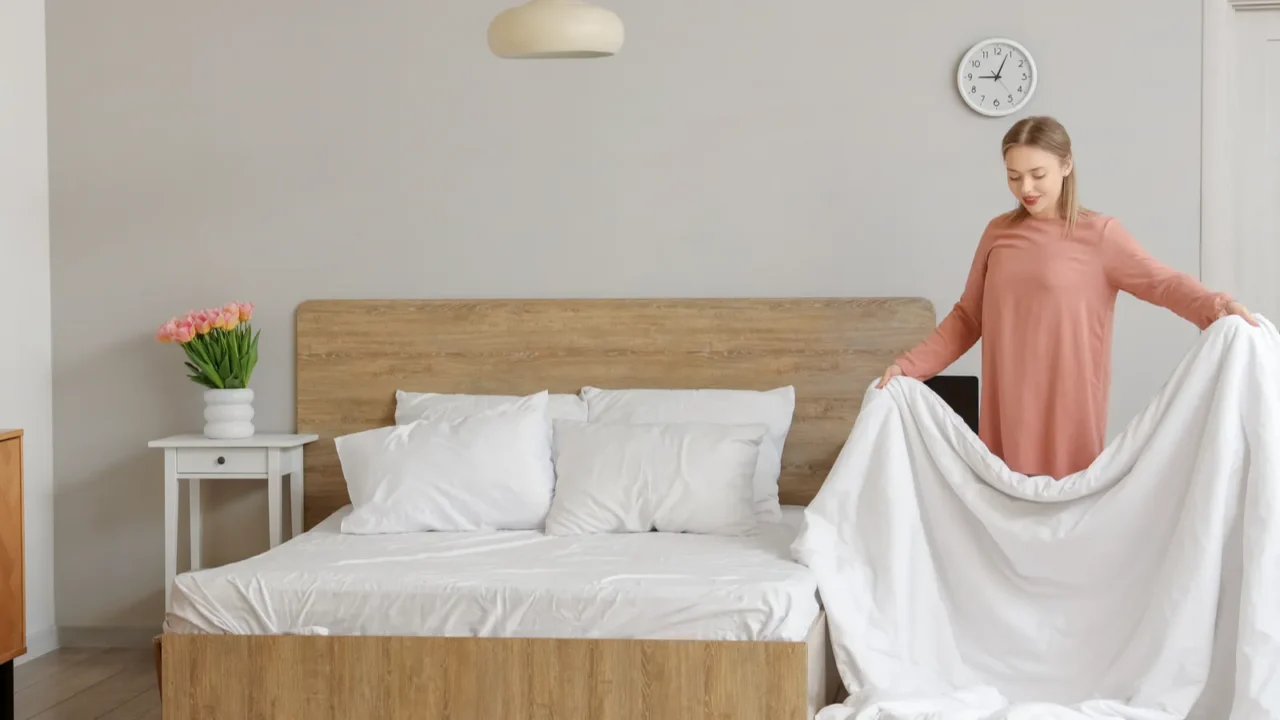
You Can Wash Your Sheets Every Two Weeks
Waiting two weeks between sheet washes might seem reasonable, but experts say that’s too long. Your bed collects sweat, dead skin, dust mites, and bacteria every night, which can lead to allergies, breakouts, and even musty odors.
Wash your sheets at least once a week to maintain freshness and hygiene. If washing weekly feels like too much, keep an extra set of sheets on hand and swap them out midweek to stay on top of cleanliness.
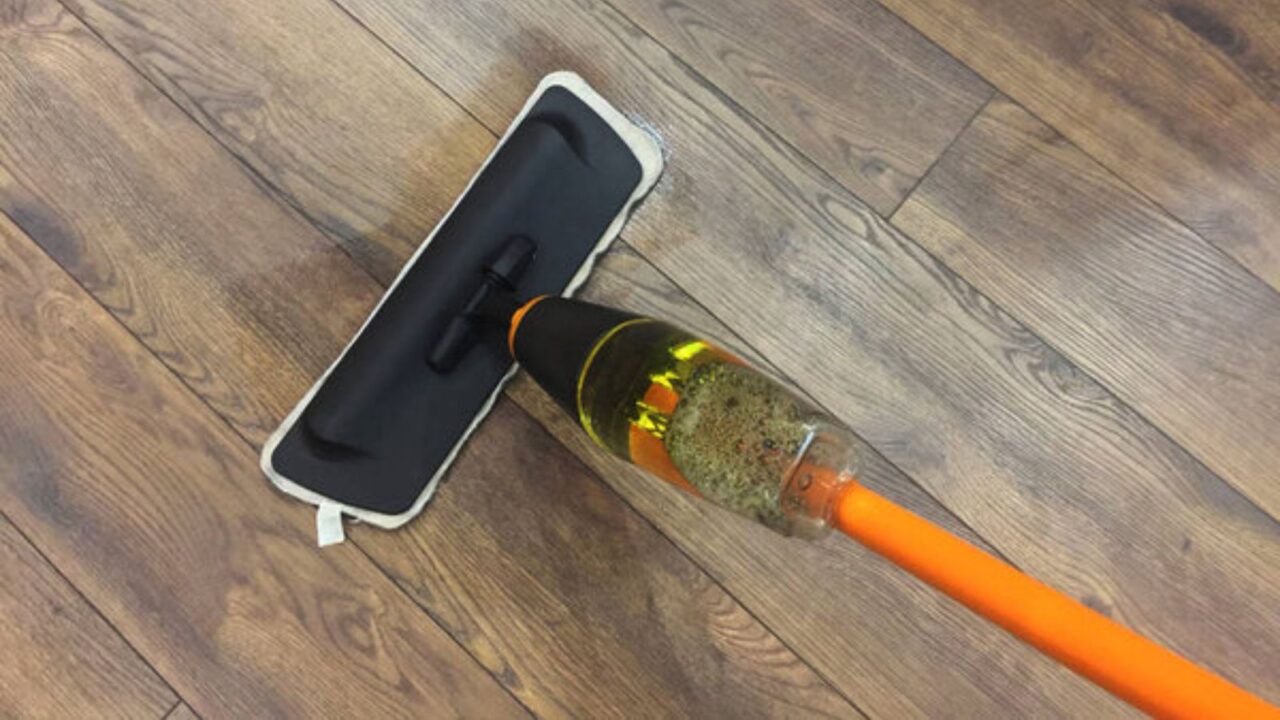
Hot Water Kills All Germs
While hot water can aid in cleaning, it’s not sufficient to kill all germs and bacteria. Most household water heaters don’t reach temperatures high enough to effectively sanitize surfaces. Relying solely on hot water can leave harmful microorganisms intact.
Pro Tip: Use appropriate disinfectants and follow recommended contact times to ensure proper germ elimination.
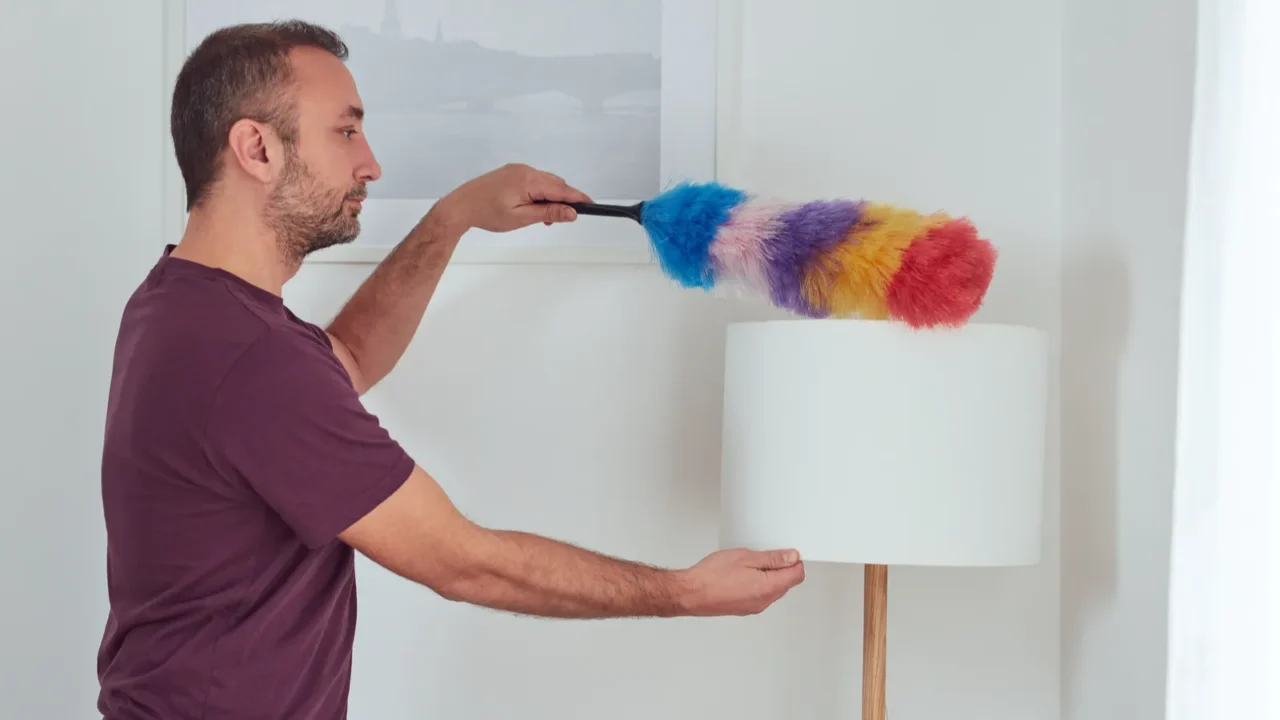
Feather Dusters Actually Remove Dust
If you’re using a feather duster, you’re likely just pushing dust around rather than removing it. Traditional dusters don’t trap particles effectively; rather, they knock dust into the air, allowing it to resettle elsewhere.
Use a microfiber cloth or an electrostatic duster instead, as both trap and lock in dust rather than just moving it around. Your home often appears dirty even after hours of cleaning. What could be the culprit? To know, check out the cleaning mistakes that are making homes dirtier.

“Sunday Resets” Are Superior
The #SundayReset trend on TikTok makes deep-cleaning on Sundays look productive, but putting all your cleaning on one day can lead to burnout. Cleaning experts suggest spreading tasks throughout the week is a better option.
This approach prevents overwhelm, makes cleaning feel more manageable, and frees up your weekends for relaxation. To keep cleaning a breeze this year, check out The Cleaning Secrets I Wish I Knew Sooner.
Read More From This Brand:
Top Fall Fixes and Cleaning Mistakes
15-Day February Decluttering And Cleaning Challenge
Why Your Cleaning Routine Isn’t Working
Don’t forget to follow us for more exclusive content right here on MSN.